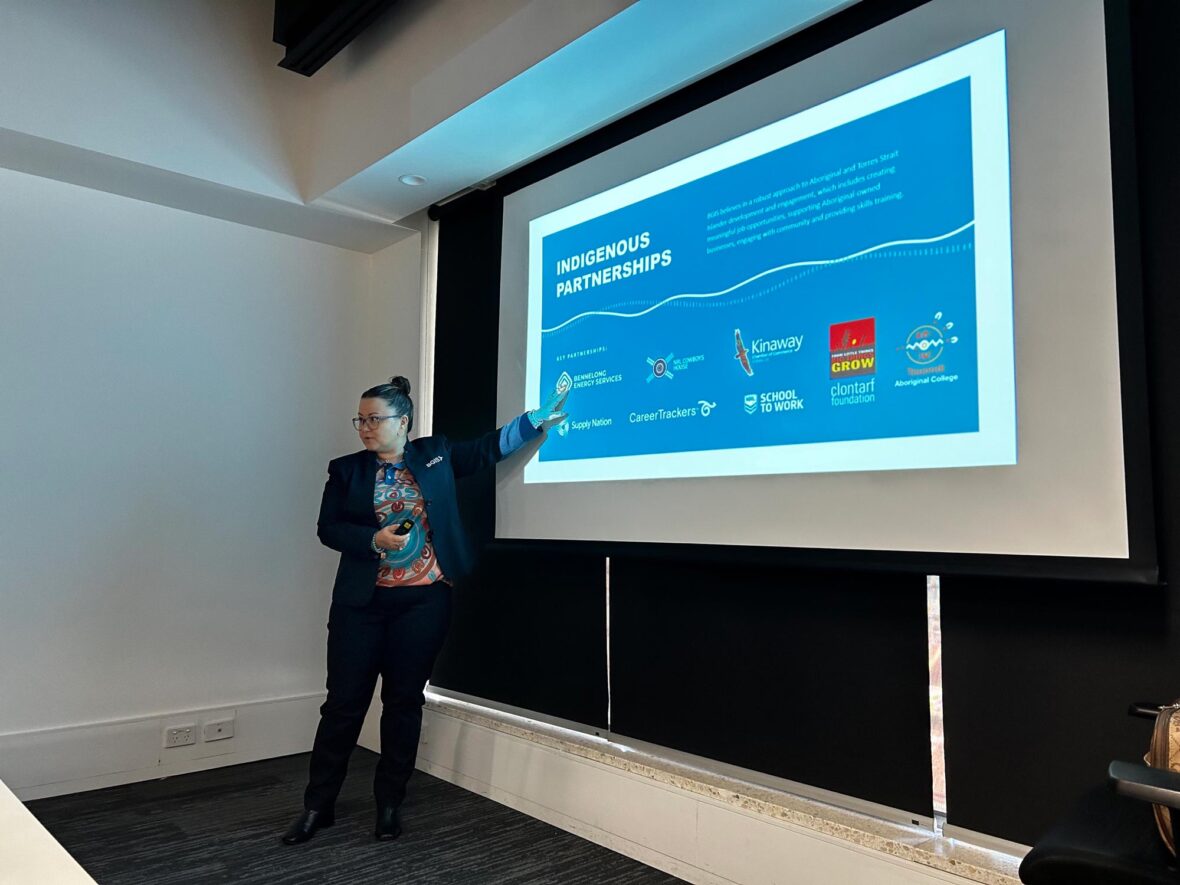Select Region


BGIS has a critical role to play in Australia’s reconciliation journey, as an organisation with a visible profile, national footprint, and diverse services across multiple industries.
We manage over 15,000 facilities, and 3% of our full time employees in Australia identify as Aboriginal or Torres Strait Islander people. Through strategic talent acquisition, BGIS has achieved a 2950% growth in Aboriginal and Torres Strait Islander employee representation in the last five years.
Earlier this year, our first Stretch Reconciliation Action Plan (RAP) was proudly endorsed by Reconciliation Australia.
This builds on our two previous RAPs, and is meant to stretch us as an organisation, look at reconciliation and what we can do, over and above what we are doing today.
Employee engagement when we first commenced in our Reflect and Innovate RAPs was challenging as there was not as strong a focus on Aboriginal and Torres Strait Islander engagement. As a result, we have promoted this through our journey and have led our teams to feel comfortable to ask questions and learn about what reconciliation means to not only BGIS, but also to our employees personally.
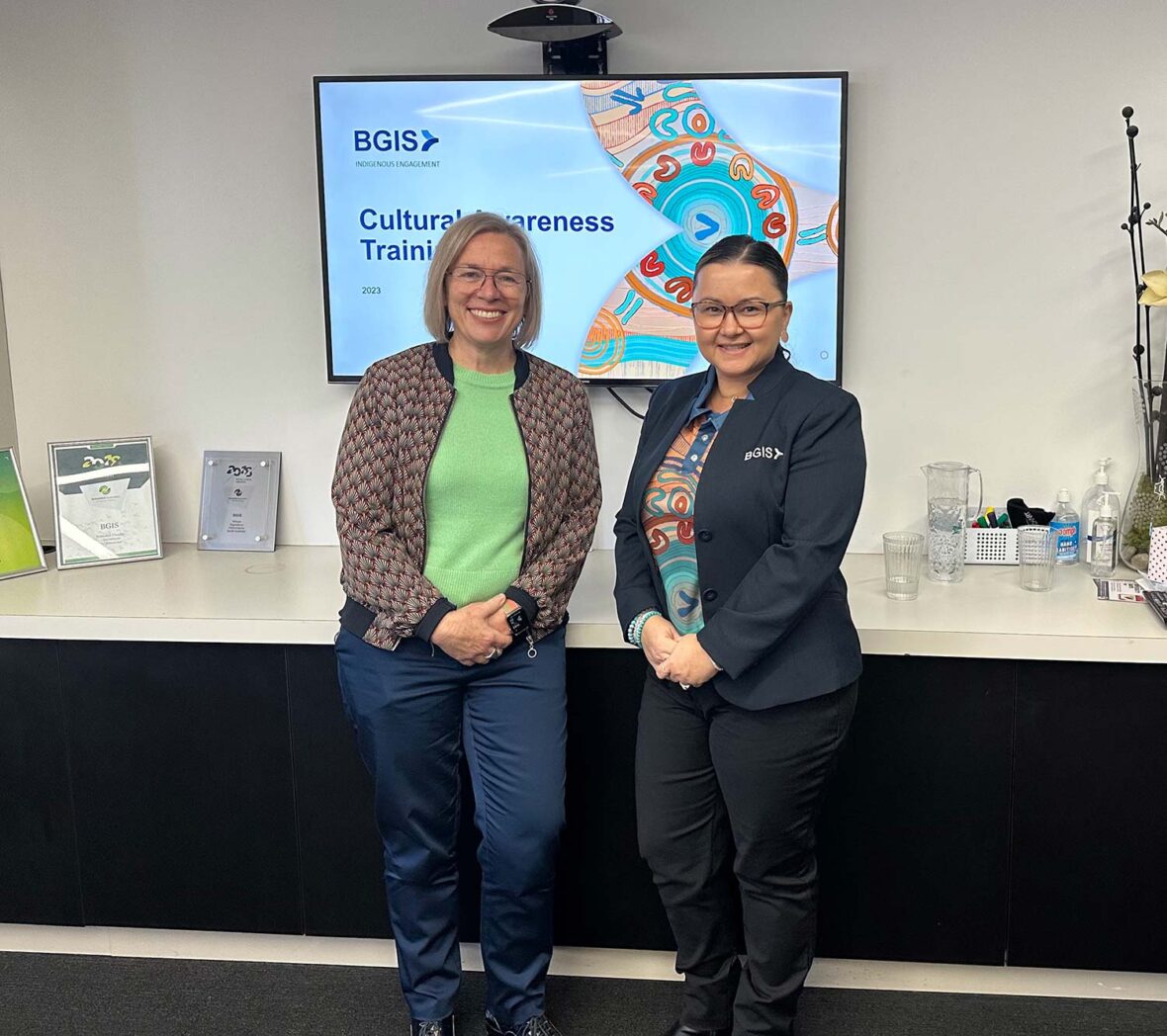
How we are influencing change
With our previous RAPs, we committed to our vision. We are now ready for the challenge to grow our impact, as well as guiding the attitudes that push the boundaries of cultural change.
Rikki Cooper, National Indigenous Engagement Manager – Australia, recently visited BGIS offices in Sydney, Melbourne, Adelaide, Perth, Brisbane and the Gold Coast, running a series of RAP and Cultural Awareness training sessions.
One session focussed on long-term strategies and measurable goals, around the areas of Relationships, Opportunities and Governance expectations, outlined in the Stretch RAP. There were 82 employees who attended this in-person training.
The other session was Cultural Awareness Training, something that employees will recognise that we are already greatly involved in, as every employee that comes into the business participates in this training as part of their on-boarding process. This training attracted 135 attendees.
The large scale in-person Reconciliation Action Plan training was offered for all line managers and above, and centred on engagement targets and how we can achieve them. It was designed to ensure participants understand our Stretch RAP for 2023-2026 and what is involved with our 136 deliverables, as well as client and vendor engagement targets.
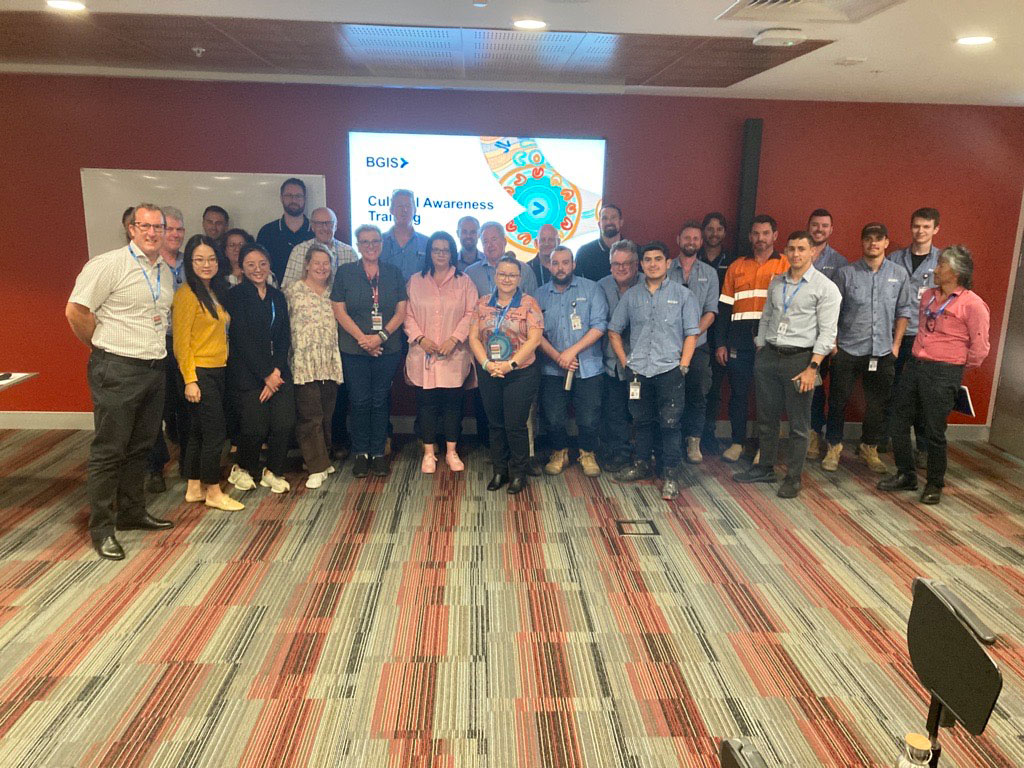
Empowering our client facing teams
When Rikki started as a Contract Manager with BGIS in 2015, she recalls the organisation didn’t really have an Indigenous footprint. Whereas now we have our RAP, and many features such as artwork and Aboriginal and Torres Strait Islander corporate branded uniforms.
She recognised from her previous role that busy Account Managers lack the time to sit down and read through the deliverables that pertain to them.
“We extracted out the deliverables that client facing teams need to be across over the next couple of years,” says Rikki, highlighting that the feedback from the roadshow surveys has been phenomenal.
“We discussed ideas and brainstormed what Account Managers can be doing out on site with clients, to help both BGIS and our clients to deliver on our RAP deliverables. ,. We researched if our clients had RAP’s, and aligned what deliverable we had that we could co-deliver on, which has been very successful.”
Further, the training involved discussions with Account Leads and teams around the country about what our expectations are, and how we can build on the strong foundation that we already have.
“It’s not about recreating the wheel, which means that if we’re doing something really well in Perth, could we be doing something very similar in Sydney and Melbourne?”
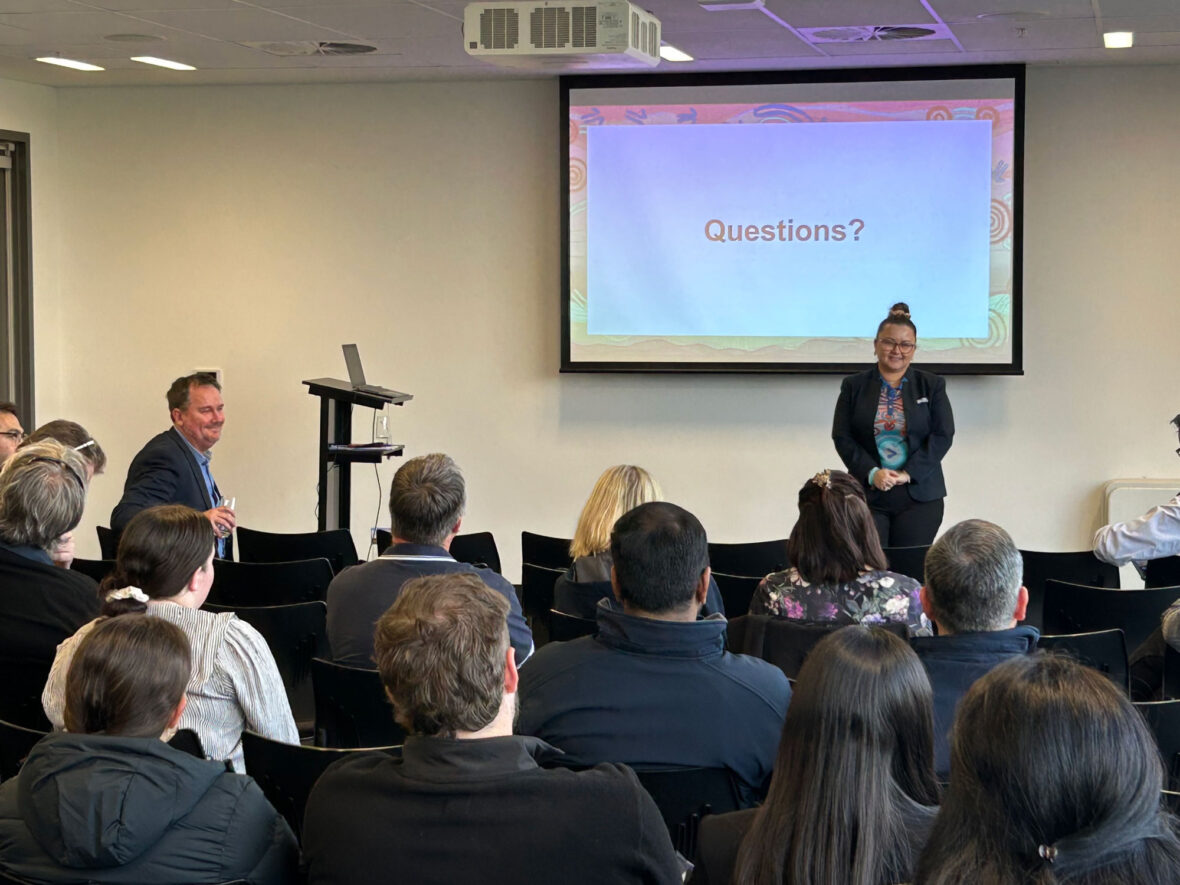
Delivering what employees need to know
“I often get reminded, especially surrounding the Cultural Awareness Training, that people don’t know what they don’t know and because our First Nations people of Australia have lived and experienced culture that not all Australians have a full understanding like we do. It was a great opportunity to share this knowledge with our teams and for them to get a better understanding of our Aboriginal and Torres Strait Islander cultures” explains Rikki.
“I was covering off on topics that people were wanting to hear about, and learn about. For example, if we have employees, or colleagues, or friends who identify as Aboriginal or Torres Strait Islander, are there any additional requirements or additional needs that they might have? What our family structure looks like and our responsibility in our family groups. The feedback has been great with employees advising that they have learnt things from the sessions that they didn’t know, which is wonderful.”
And she adds, that’s exactly what the RAP and Cultural Awareness sessions are about.
“I have a motto – I like to make the uncomfortable, comfortable – and I share that at the beginning of each session. I wanted to remove any barriers, and reading the feedback, it was evident that people did feel comfortable.”
Importantly, someone said that after completing their Cultural Awareness training as part of onboarding, they knew that “as an organisation that their voices were already going to be heard, barriers were already removed, that we do things authentically because we do them at the beginning.” Coming into a place like BGIS, we show our values in our everyday operations.
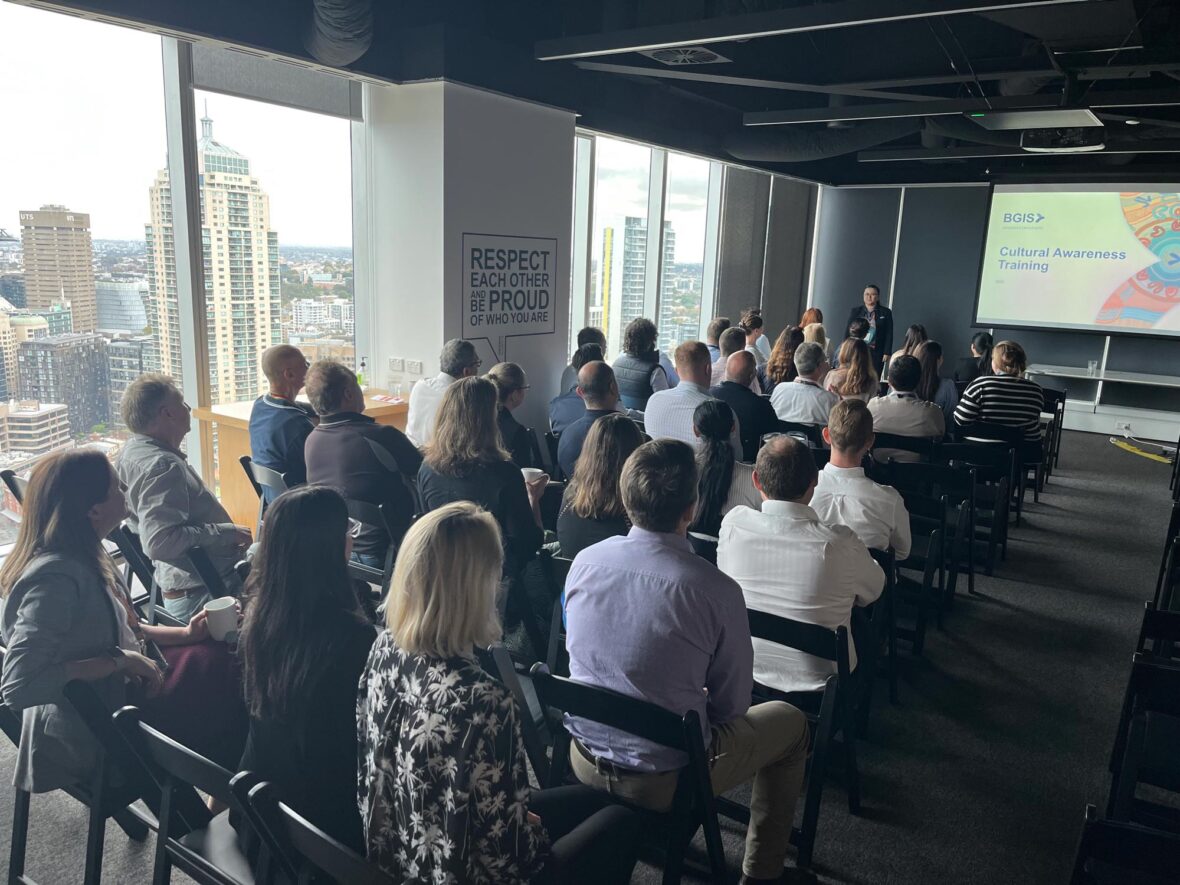
Making it personal
Embedded into the BGIS values is the understanding that mutually respectful relationships are at the very heart of reconciliation.
“I share a lot of my journey as an Indigenous woman living in Far North Queensland, and working for an organisation as large BGIS. Our employees have really respond to that personal touch. It offers them an understanding, not just because of what they’re reading or watching on a video, but about what a colleague has gone through,” says Rikki.
“We discussed in sessions things like Sorry Business, what to expect during these times, kinship and family structure, which led into conversations about connection to country. All of this, which has been so well received, is amazing.”
Rikki believes BGIS should be proud of our success.
“I live in a remote area of Australia surrounded by Indigenous communities, and BGIS has invested in me, in the position, and shown that they are doing things genuinely and authentically. We’re not just here to tick boxes. And I think that’s where our success comes from, because we look at things and don’t just do them for the sake of doing them, there must be meaning for the program or partnership we’re entering into, with deliverables that are worthwhile to the organisation and our industry and our people.”
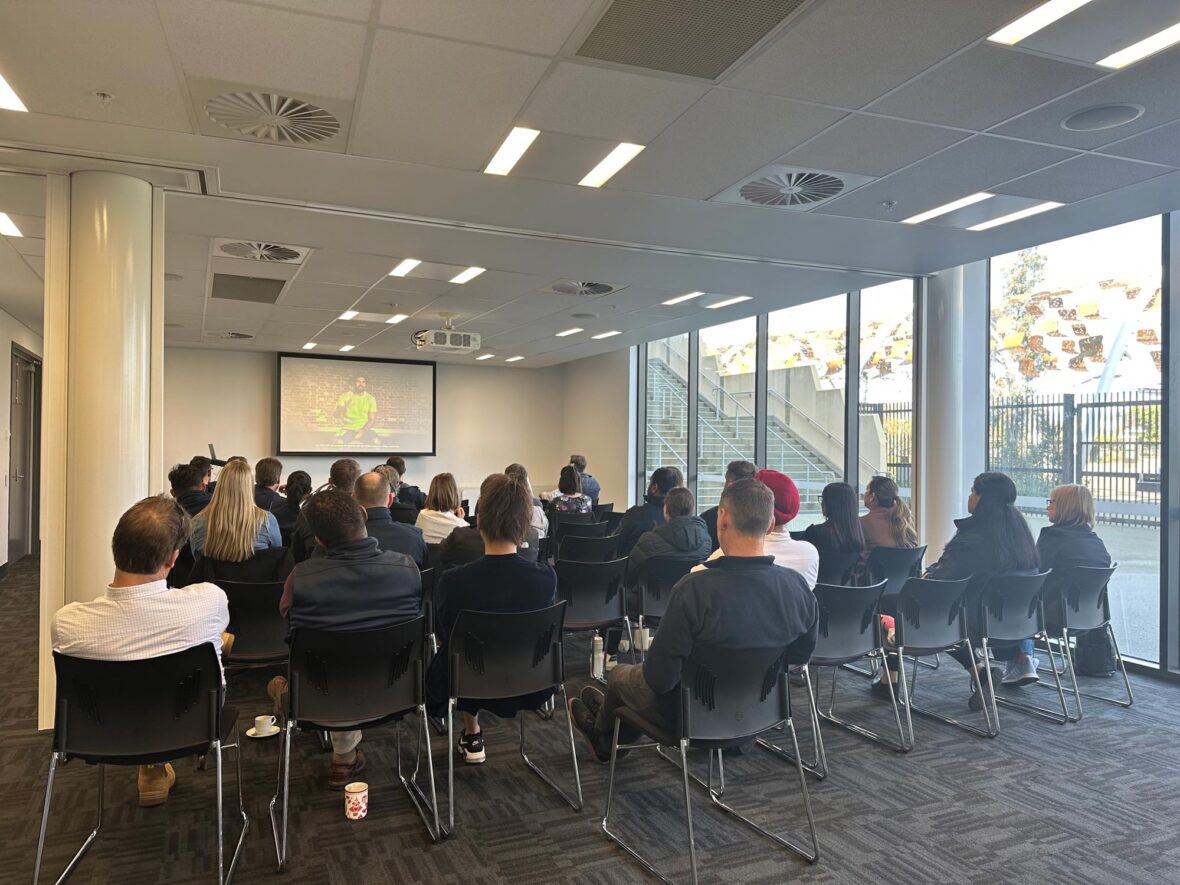
Turning targets into business as usual
As a business with a large presence across Australia, we have embedded reconciliation into our business as part of our DNA.
And with our national footprint, there is an opportunity for us to grow the number of Aboriginal and Torres Strait Islander people in our workforce, and to support the procurement of services and products from Indigenous suppliers.
Our ongoing success is tied to ensuring all BGIS people have the understanding and tools needed to recognise and encourage cultural diversity. With the right support in place, we are actively influencing change and continuing to strengthen relationships within the Indigenous business sector, which extends employment opportunities and benefits to Indigenous communities.
